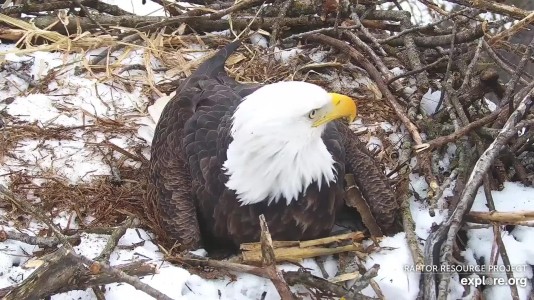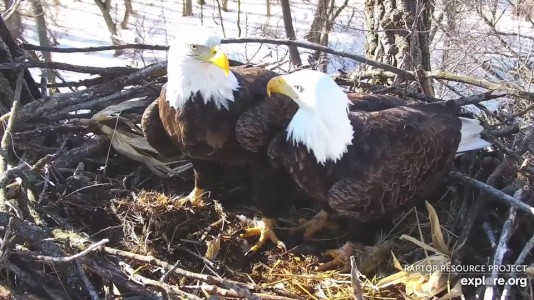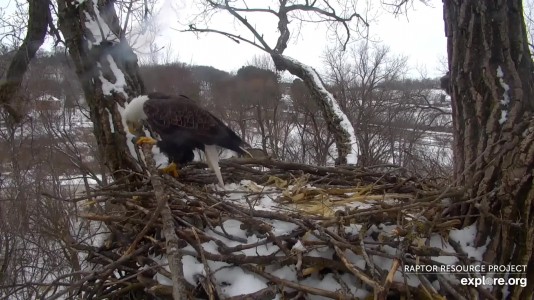Winter Is Coming
/ Post by Brendan Cummings of Polar Bears International
Yesterday was sunny and clear, with magical light and a glimpse (or perhaps hallucination) of the green flash at sunset along the shores of Hudson Bay. After three nights on the tundra, our first clear night brought out the Aurora Borealis, glowing and undulating below the stars in the sky above. The air was cold and still, and sleep was good.
But pre-dawn the buggy we are sleeping in begins to rock, and a roaring wind drowns out the snores of the scientists sleeping down the hall. A glance out the window shows no stars at all, only blowing snow. Winter is coming.
A few days earlier the arrival of winter, with freeze-up of Hudson Bay and the departure of hungry and restless polar bears, seemed painfully distant. Now it seems imminent.
For the ice-deprived polar bears of Western Hudson Bay winter can never come too soon. As the ice-free season grows longer each year, their time to hunt seals on the ice shortens and the bears spend more time on land. They grow thinner, cubs are fewer, some starve, and the population shrinks.
For many animals winter is a time of hardship and starvation, but for these polar bears it is salvation. The coming of winter means the end of the great hunger and chance to hunt and feed. But the salvation of this winter is only temporary, as spring will inevitably come, the ice will melt (perhaps a little earlier than last year), and the bears once again will be marooned on land waiting for ice (perhaps waiting a little longer than this year), their numbers likely fewer.
As the climate continues to warm and our political leaders continue to fail to lead, another kind of winter is approaching. The cold darkness of extinction is looming over these bears. It is likely already too late for the bears of Hudson Bay, as the inertia of the carbon-saturated climate system is pushing the temperatures ever upwards, the ice-free season longer, and these bears ever closer to the extinction cliff.
Unless we decide to intervene and go down the path of the very messy, expensive, and perhaps futile effort of feeding these animals that we have, through our greenhouse emissions, deprived of food, there is little we can actually do to help these southernmost of polar bears.
But we can still watch them, enjoy their beauty and majesty, empathize with their hunger and suffering, and make sure our knowledge of their fate inspires us to act somehow to prevent climate change and human indifference from killing off their brethren to the north.
Winter of 2012 seems to be arriving early enough in Churchill to keep these walking dead polar bears alive through another season. But absent real efforts to rein in our greenhouse emissions, the longest, darkest and loneliest of winters in human memory will soon be upon us and we will face the reality of a world without polar bears.


